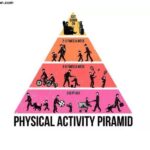Starting a job is one of the most significant transitions in a person’s life. Whether it’s your first job or a new position in your career, entering the workforce brings about a profound shift in various aspects of your daily routine, mindset, and overall lifestyle. The move from the relative freedom of student life or unemployment to the structured demands of a professional role can be both exhilarating and overwhelming. This article explores the multifaceted ways in which starting a job can change a person’s lifestyle, examining the impact on time management, social life, mental and physical health, financial status, and personal growth.
Time Management and Routine
One of the most immediate and noticeable changes when starting a job is the shift in time management and daily routine. A job typically imposes a structured schedule, often requiring early mornings and long hours. This is a stark contrast to the flexibility of student life or the irregular hours one might experience while unemployed.
- Structured Daily Routine: The introduction of a fixed work schedule means that your day is now divided into distinct segments—working hours, commuting time, and personal time. This often necessitates a reevaluation of how you allocate your time to different activities. For instance, hobbies and leisure activities might need to be adjusted to fit around work hours.
- Prioritization: With a more packed schedule, prioritization becomes essential. Tasks that were once done at leisure now need to be carefully planned and sometimes even sacrificed. This often includes social activities, personal projects, and even simple errands.
- Sleep Patterns: A regular job often requires an early start, which can lead to significant changes in sleep patterns. Those who were accustomed to staying up late might find themselves needing to adjust to ensure they get enough rest to be productive during work hours.
Social Life and Relationships
Starting a job can have a profound impact on your social life and relationships. The time you previously had for friends and family may now be limited, and the dynamics of your social interactions may change as a result.
- Workplace Relationships: As you spend a significant portion of your day at work, your colleagues can become an important part of your social circle. Building relationships at work can lead to new friendships, but it can also create challenges as you navigate the complexities of workplace dynamics, including office politics and competition.
- Reduced Social Time: The demands of a job often leave less time for socializing outside of work. Weekends and evenings may become the only time available to spend with friends and family, leading to a more structured social life. Some people find it challenging to maintain their previous social life, especially if their friends have different schedules or lifestyles.
- Changes in Relationships: The shift in priorities can also affect personal relationships. Partners, friends, and family members may need to adjust to the changes in your availability and energy levels. This can sometimes lead to tension, especially if the new job is particularly demanding or stressful.
Mental and Physical Health
The demands of a job can also have a significant impact on both mental and physical health. While employment can bring financial stability and a sense of purpose, it can also introduce stress, anxiety, and physical strain.
- Stress and Anxiety: Starting a new job can be stressful. The pressure to perform, meet deadlines, and adapt to a new environment can lead to increased anxiety. Over time, this stress can take a toll on mental health, leading to burnout if not managed properly.
- Physical Health: The sedentary nature of many jobs, especially those that involve long hours at a desk, can lead to physical health issues such as back pain, eye strain, and weight gain. Additionally, the time constraints of a full-time job can make it challenging to maintain a regular exercise routine, which can further impact physical health.
- Work-Life Balance: Maintaining a healthy work-life balance is crucial for both mental and physical well-being. The demands of a job can sometimes encroach on personal time, making it difficult to relax and recharge. Finding a balance that allows for both professional success and personal fulfillment is essential.
Financial Changes
One of the most obvious and significant changes that comes with starting a job is the impact on your financial situation. Regular income brings both opportunities and responsibilities.
- Increased Income: The most immediate benefit of starting a job is the increase in financial stability. Regular income can improve your standard of living, allowing you to afford better housing, travel, and other luxuries. However, it also comes with the need to manage this income responsibly.
- Budgeting and Financial Planning: With a steady income comes the need for budgeting and financial planning. This may include managing expenses, saving for the future, and potentially investing. The responsibility of managing your own finances can be both empowering and daunting, especially if it’s a new experience.
- Debt and Obligations: For many, starting a job also means beginning to pay off student loans or other debts. This financial obligation can be a significant source of stress and requires careful management to ensure that debt doesn’t become overwhelming.
Personal Growth and Development
Starting a job is not just about financial gain or time management; it also offers significant opportunities for personal growth and development.
- Skill Development: Every job, no matter the field, offers the chance to learn new skills. These can be technical skills related to your profession, or soft skills like communication, teamwork, and problem-solving. This ongoing learning process is a key aspect of professional and personal development.
- Increased Responsibility: With a job comes increased responsibility. Whether you’re managing projects, leading a team, or simply being accountable for your own work, this responsibility can foster a sense of maturity and independence.
- Sense of Purpose: For many, work provides a sense of purpose and identity. The satisfaction of contributing to a team, achieving goals, and seeing the tangible results of your efforts can be incredibly fulfilling. This sense of purpose can greatly enhance your overall life satisfaction.
- Career Progression: Starting a job is often just the first step in a long career journey. The experiences, skills, and relationships you build in your job can pave the way for future opportunities and career advancement.
Challenges and Adjustments
While starting a job brings many positive changes, it also comes with its share of challenges. Adjusting to a new lifestyle can be difficult, and it’s important to be prepared for the potential hurdles.
- Adapting to Workplace Culture: Every workplace has its own culture and norms, and adapting to these can be challenging. Understanding the unspoken rules of the workplace, building rapport with colleagues, and navigating office politics can be particularly difficult for those new to the professional world.
- Imposter Syndrome: Many people, especially those starting their first job, experience imposter syndrome—the feeling that they are not qualified or deserving of their position. This can lead to self-doubt and anxiety, making it difficult to perform at your best.
- Managing Expectations: Both personal and professional expectations can be challenging to manage. There may be pressure to excel quickly, both from yourself and from your employer. Learning to set realistic goals and managing expectations is crucial for long-term success and well-being.
- Balancing Ambition and Well-being: It’s important to find a balance between ambition and well-being. While striving for success is admirable, it should not come at the cost of your mental or physical health. Recognizing when to push forward and when to step back is an essential skill in maintaining a sustainable and fulfilling career.
Conclusion
Starting a job is a transformative experience that brings about significant changes in a person’s lifestyle. From time management and social life to financial stability and personal growth, the transition into the workforce affects almost every aspect of daily life. While it comes with its challenges, such as stress and the need for adaptation, it also offers immense opportunities for development, both personally and professionally.
The key to navigating this transition successfully lies in maintaining a balance—between work and life, ambition and well-being, and personal time and professional obligations. By managing these aspects thoughtfully, starting a job can be a rewarding experience that not only changes your lifestyle but also enriches your life in countless ways.




